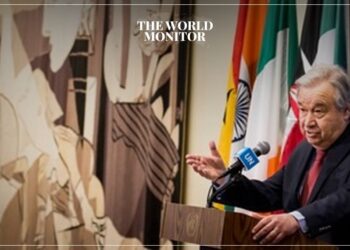European Union leaders will discuss ways to bolster support for Kyiv, struggling with shortages of men and ammunition, at the Thursday summit, alongside boosting their military capabilities to face Russia under Vladimir Putin, who won a new presidential term two years after initiating his invasion of Ukraine. The EU is also seeking ways to enhance its military and defense industries, aiming to provide additional aid to Ukraine and strengthen its own defenses.
On Thursday, European leaders will convene a summit to discuss how to enhance their support for Ukraine and their countries’ military capabilities. This summit comes as Russian forces make some progress in Ukraine, exploiting Kyiv’s ammunition shortage, particularly amid the suspension of American support due to internal political disagreements in Washington between Democrats and Republicans. The EU’s foreign policy chief, Josep Borrell, warned before the summit that “if Ukraine had to surrender, a puppet regime would be installed in Kyiv, and the Ukrainian people would be crushed. The Russian army would be on our borders, and we are confident it will not stop there.”
After winning a new six-year presidential term last week in an election without any opposition, Vladimir Putin considered the domestic achievements as a “prelude” to victory in Ukraine.
Amid the disputes between Republicans and Democrats in the U.S. Congress, leading to the suspension of a $60 billion aid package requested by President Joe Biden’s administration, European leaders will consider using approximately 200 billion euros from frozen Russian assets to fund military support for Kyiv. This move would yield three billion euros annually. If the 27 EU member states agree, funds could start being disbursed by July. This amount would add to the over 33 billion euros the EU has provided for Ukraine’s military support since the Russian invasion began in February 2022.
In addition to supporting Kyiv, the European Union seeks ways to boost its military and defense industries, providing extra aid to Ukraine and strengthening its defenses. Brussels has put forward several proposals in this direction, but there are complaints about the EU not progressing quickly enough in this area.
The European Council President, Charles Michel, stated, “At this critical stage of world history, we must be prepared to defend in a manner that matches the imminent threat. If we want peace, we must prepare for war.” France, Estonia, and Poland have proposed joint borrowing to finance defense spending, similar to the massive aid package the EU approved during the COVID pandemic. However, most member states, led by Germany, are not in favor of this approach.
The discussion is expected to focus on ways to encourage the European Investment Bank, the EU’s lending arm, to boost funding for the military and defense sector. Currently, the bank’s funding is limited to a few dual-use products, civilian and military.
As discussions will primarily revolve around Ukraine, EU leaders at the summit, attended by UN Secretary-General António Guterres, are expected to push for a unified stance on the Gaza Strip conflict. Diplomatic sources indicate that the majority of member states support calling for an “immediate humanitarian truce” in the war between Israel and Hamas and warn Israel against launching a ground operation in Rafah, at the southern end of the besieged Palestinian territory. However, Hungary, a close ally of Israel, may use its veto power to prevent more stringent positions against Israel at the current summit.
EU leaders are also expected to green-light the start of formal negotiations for Bosnia’s entry into the bloc. Diplomatic sources suggest members will agree to begin negotiations, contingent on Bosnia undertaking further reforms.






